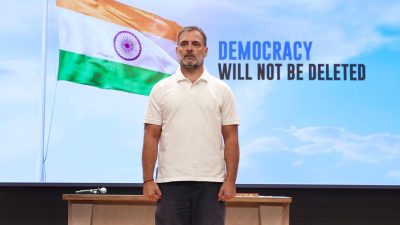Nuke deterrence may prove costly for India, Pak — Activist
THIRUVANANTHAPURAM, DECEMBER 20: Noted anti-nuclear activist Praful Bidwai on Sunday said that nuclear deterrence, the argument put forwar...

THIRUVANANTHAPURAM, DECEMBER 20: Noted anti-nuclear activist Praful Bidwai on Sunday said that nuclear deterrence, the argument put forward by India and Pakistan to “gain the high moral ground for their nuclear programme”, was in grave danger of collapsing with unprecedented repercussions.
Speaking on “nuclear politics and future of global disarmament” with regard to the book South Asia on a short fuse he co-authored with Achin Vanaik, Praful said that a host of factors like internal tension, routine military exercises, inadequate early warning system and short missile flight timings rendered “confidence-building measures” useless.
Despite the US and former USSR taking a series of confidence-building measures including setting up of hot lines and protocols, there were at least 10,000 false warnings during the cold war.
He said retired generals of the cold war era of both sides had admitted that nuclear deterrence had rarely served to ease their tensions and it was only sheer luck which avoided all-out wars.
There were hundreds of near-misses where planes skidded off ships, aircraft with missiles crashing in the mountains and ships colliding. However, the safety system of the nuclear programme in a country like India which had a reputation of maintaining low safety standards in industry and even nuclear power was predictable.
Achin Vanaik who along with Praful is an activist of Movement in India for Nuclear Disarmament (MIND) said the highest probability of a nuclear outbreak in the world was in South Asia.
The Draft Nuclear Doctrine (DND) formulated by National Security Advisory Board marked a further hardening of India’s nuclear posture. The DND was pushing the country towards an open-ended huge triadic (land, air and sea-based) nuclear force.
Praful pointed out that India which had been one of the sustained campaigners of nuclear disarmament had cynically reversed its own policy of deterrence. China which had rarely been a bully for 34 years since it possessed a nuclear weapon was likely to review its programme which it had watered down as part of confidence-building measures with India.
He said the Government would have to shell out Rs 40,000 crore for building a small arsenal of 100 nuclear weapons. India’s military spending was likely to rise by Rs 20,000 crore this year, according to a Defence Ministry report. Describing the nuclear programme as neither country-specific nor threat-specific, he warned against succumbing to the dogmatic belief that nuclear weapons could be the answer to all problems of the country.
He said that the BJP Government by making its nuclear intentions clear was distorting the real priorities before the nation.
Quoting extensively from the duo’s book, Prof Ninan Koshy, however, said the authors’ remarks that most theological schools did not confront the moral issue of nuclear weapons was not true. The World Council of Churches of which he was a member did reject nuclear deterrence in 1983.





- 01
- 02
- 03
- 04
- 05


























